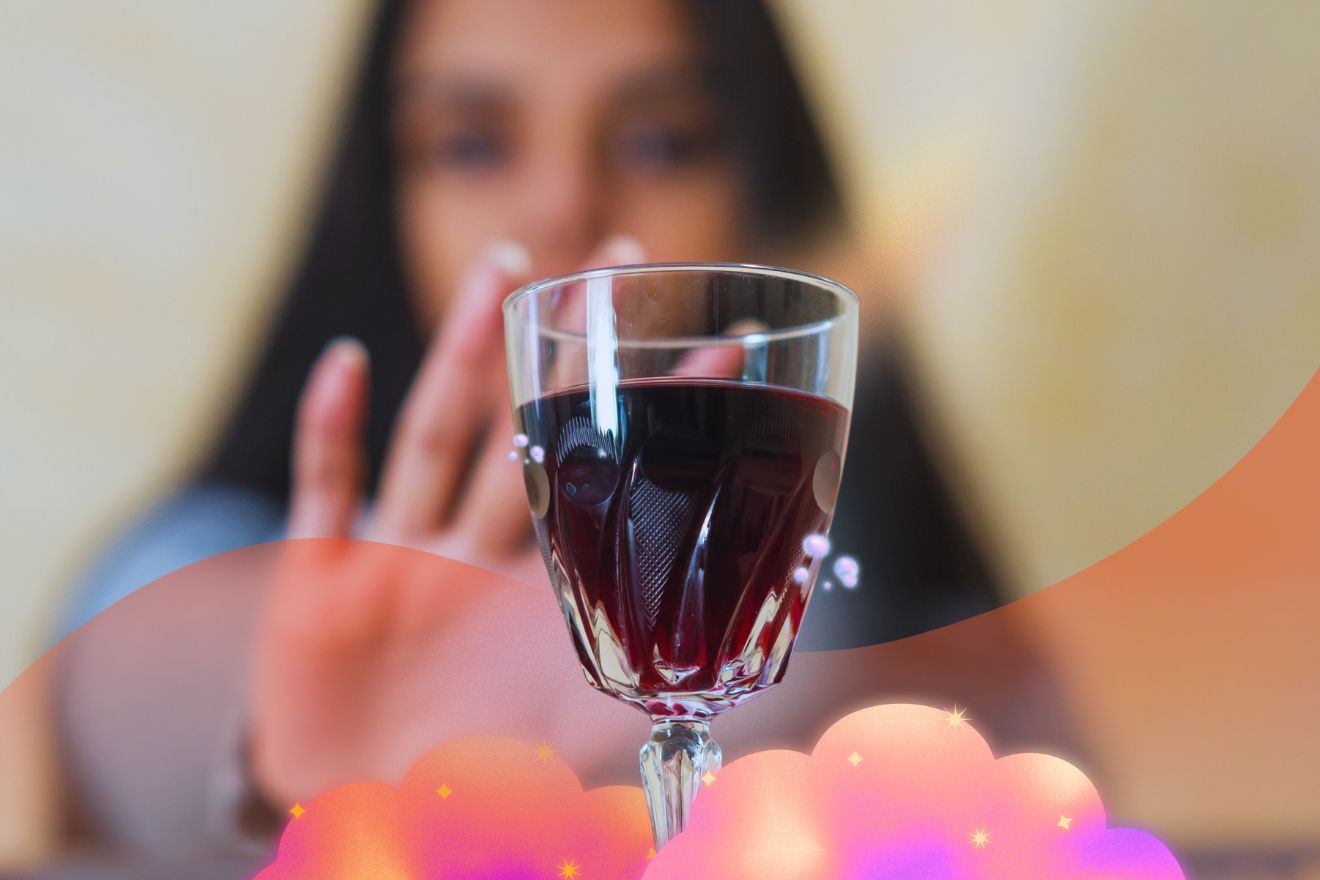In the second part of our series, we take a look at MDMA therapy for alcohol use disorder (AUD) treatment. (If you missed the series introduction, please click here to catch up.) Historically, MDMA was made illegal in 1985 and was perceived to have no medical benefit. That is, until recently. MDMA-assisted therapy is on the way to becoming FDA-approved. This therapy would be for use as a treatment for those who have post-traumatic stress disorder.
Learn More by Reading the Other Parts of Our Blog Series on Psychedelics and AUD:
Research is expanding as people across the world are seeing and reaping the benefits of these psychedelic medicines. Legalizing and regulating psychedelics would allow more research to be conducted and treatments to reach those in need. Although change and reform can be intimidating, we must take action. We are experiencing a mental health crisis. It is up to us to reform, advocate, and push for the betterment of mental health and society.
3,4-methylenedioxymethamphetamine or MDMA (also known as “ecstasy” or “molly”) was once demonized as a street drug used at raves. Now, it shows promise in treating alcoholism.
An Overview of MDMA’s History
You may not know that the German pharmaceutical company Merck first developed MDMA as a blood clotting agent in 1912. Since then, MDMA has had its ups and downs. Psychoactive chemist du jour Sasha Shulgin rediscovered MDMA in 1965. During the late 1970s and early 1980s, this paved the way for using MDMA as a therapeutic agent for marital and couples therapy.
In 1985, the Drug Enforcement Administration (DEA) declared an emergency ban on MDMA. Inevitably, this led to the classification of MDMA as a Schedule 1 Substance. Although pushed underground, MDMA never disappeared. Approximately ten years later—between 1994 and 1995—the FDA approved the first-ever Phase 1 exploration of MDMA’s safety in clinical settings. Dr. Charles Grob and the Multidisciplinary Association for Psychedelic Studies (MAPS) spearheaded the fledgling MDMA research at the time.
Little by little, the work of MAPS (now Lykos Therapeutics) found success around the world. The initial breakthroughs revolved around using MDMA as a catalyst for psychotherapy in the treatment of post-traumatic stress disorder (PTSD). The research outcomes were newsworthy. This impact is notable because MDMA therapy made a significant impact on patients considered to be ‘treatment-resistant’ and non-responders to conventional treatments. A veteran featured on The Today Show was one example that made news headlines. He shared about the impact MDMA therapy had on his chronic PTSD symptoms and the long-lasting healing he experienced after participating in the trial. Now, over two decades of research and clinical trials have repeatedly shown the healing and therapeutic potential of MDMA when combined with psychotherapy.
For the complete history of MDMA, its pharmacology, effects, and research, read our MDMA-assisted therapy guide.
Today, MDMA’s therapeutic evolution branches out into various mental health fields—including investigations of MDMA as an alcohol use disorder treatment.
MDMA Research for Alcohol Use Disorders
Evidence continues to mount, demonstrating the effectiveness of treatment such as MDMA therapy for alcohol use disorders. Recent advances in the field highlight the foundation of MDMA’s therapeutic potential, as well as indications for future research.
Slowed by its roundabout journey, we are now just learning about MDMA’s therapeutic and healing potential outside of its initial focus on PTSD treatment. Presently, the research on MDMA therapy as a treatment for AUD doesn’t have decades’ worth of studies backing its efficacy. However, researchers are starting with a strong rationale.
- An article in the journal Neuropharmacology nods to past studies and research from the 1950s. It also echoes the sentiments of A.A. founder Bill Wilson. It states: “The earliest historical roots of psychedelic drug-assisted psychotherapy in the 1950s were associated with Lysergic acid diethylamide (LSD)-assisted psychotherapy to treat what was then called alcoholism [1].”
- The framing of alcohol use disorder is in the context of societal norms. The article describes this context: “Although drinking alcohol is a widely socially acceptable behaviour and many people drink without experiencing problems, approximately 24% of the adult population of England consume alcohol in a way that is harmful, and 6% of men and 2% of women meet the diagnostic criteria for alcohol use disorder [1].”
- Finally, the vital connection to trauma is described, “Many patients with alcohol use disorder have a history of psychological trauma, and there is an association between the disorder and PTSD [1].”
There is a strong foundation of research focusing on MDMA. It comes as no surprise that pilot studies reveal the potential application of MDMA-assisted psychotherapy as a treatment for AUD.
Survey Says… Great Promise
“[T]he reduction in alcohol use and alcohol-related consequences may be uniquely associated with MDMA-AT.”
— Christopher R Nicholas et al.
Research shows limited information about the use of MDMA-assisted psychotherapy as a therapeutic intervention for AUD. However, recent studies have already shown compelling results. Researchers at the Imperial College of London conducted one of the first research trials investigating the effect of MDMA for alcohol cessation [2]. The authors summarize the findings by stating:
“MDMA treatment was well tolerated by all participants. No unexpected adverse events were observed. Psychosocial functioning improved across the cohort. Regarding alcohol use, at nine months post-detox, the average units of alcohol consumption by participants was 18.7 units per week compared to 130.6 units per week before the detox [2]”
The UK-based research team found that MDMA is safe for use in therapeutic treatment. In addition, behavioral health among the trial participants improved, and alcohol consumption decreased by 86%.
In addition, alcohol use data from a phase 3 trial of MDMA therapy for PTSD was analyzed and published. Titled “The Effects of MDMA-assisted Therapy on Alcohol and Substance Use in a Phase 3 Trial for Treatment of Severe PTSD,” the article also identified positive results. They noted that the “…findings suggest that the reduction in alcohol use and alcohol-related consequences may be uniquely associated with MDMA-AT [3].” MDMA-AT refers to MDMA-assisted therapy.
The research on MDMA therapy for AUD is still limited to a small number of studies. Even so, it is hopeful that further research will become easier to conduct and fund. If MDMA therapy becomes FDA-approved for PTSD, it may be possible for this treatment to be prescribed off-label for AUD. This would be without extensive trials and marketing approval specifically for this indication.
Safety and Stigma of MDMA
For decades now, even generations, MDMA has been propagandized by the government and mass media. Much like Reefer Madness, MDMA became synonymous with “Ecstasy,” all night long raves, overheating, neurotoxicity, and associated deaths from excessive dancing, leading to dehydration, polydrug use, or overhydration. Thus, MDMA’s cultural and social stigma is potent and difficult to untangle. But the science now begins to speak for itself.
In clinical settings, MDMA has thus far been shown to be safe and effective. Safety in clinical settings has been demonstrated in trial participants who are carefully screened for contraindicated medical diagnoses and possible medication interactions with MDMA. Analyses of the studies included above show MDMA can be safely administered in clinical settings. It may take years, if not decades, to shape society’s negative perceptions of psychedelic use. There is a growing demand for improved mental health approaches in society, indicating a hunger for change. In light of the psychedelic revival happening now:
Against this backdrop, psychiatry and society continue to be burdened with treatment outcomes for alcohol use disorder that are little better now than they were 100 years ago. In this context, given the clinical burden, the lack of treatment efficacy, and their continued distress, can we afford not to explore innovative options such as MDMA Therapy for treating our patients with alcohol use disorder? [1]
One vital question remains.
How do I Know if MDMA Therapy for Alcohol Use Disorder is For Me?
For now, the easy answer is that MDMA treatment is for no one at the moment. Why? Because regulatory authorities still classify MDMA as a Schedule I “drug.” Therefore, it is illegal for any type of use outside of regulated clinical trials. It will take years to de-classify MDMA as a Schedule 1 substance. This de-classification will only happen if MDMA becomes FDA-approved as a legal treatment. Even still, only approved MDMA medications will change classifications and not the non-medical use of Ecstasy— unless further policy reform occurs. If MDMA becomes FDA-approved as a treatment for PTSD, it may be possible for doctors to prescribe it off-label for conditions such as alcohol use disorders. However, at this time, it is unclear how exactly MDMA will be regulated after the anticipated FDA approval.
If you think MDMA is a viable treatment for you or a loved one, consult your primary doctor and therapist. Medical contraindications may prohibit you from using MDMA. If this is the case, there are other treatment options. Alternatively, you may also consider joining a clinical trial.
Follow your Curiosity
Sign up to receive our free psychedelic courses, 45 page eBook, and special offers delivered to your inbox.Another legal and widely available option is ketamine treatment for alcohol use disorder. Please join us for part 3 of our series and continue reading about ketamine and alcohol cessation.
References
- Sessa, B. (2018). Why MDMA therapy for alcohol use disorder? And why now?. Neuropharmacology, 142, 83-88. https://pubmed.ncbi.nlm.nih.gov/29126911/
- Sessa, B., Higbed, L., O’Brien, S., Durant, C., Sakal, C., Titheradge, D., … & Nutt, D. J. (2021). First study of safety and tolerability of 3, 4-methylenedioxymethamphetamine-assisted psychotherapy in patients with alcohol use disorder. Journal of Psychopharmacology, 35(4), 375-383. https://pubmed.ncbi.nlm.nih.gov/33601929/
- Nicholas, C. R., Wang, J. B., Coker, A., Mitchell, J. M., Klaire, S. S., Yazar-Klosinski, B., … & Doblin, R. (2022). The effects of MDMA-assisted therapy on alcohol and substance use in a phase 3 trial for treatment of severe PTSD. Drug and alcohol dependence, 233, 109356. https://pubmed.ncbi.nlm.nih.gov/35286849/
The article was reviewed and edited for scientific accurracy by Allison Feduccia, PhD.






